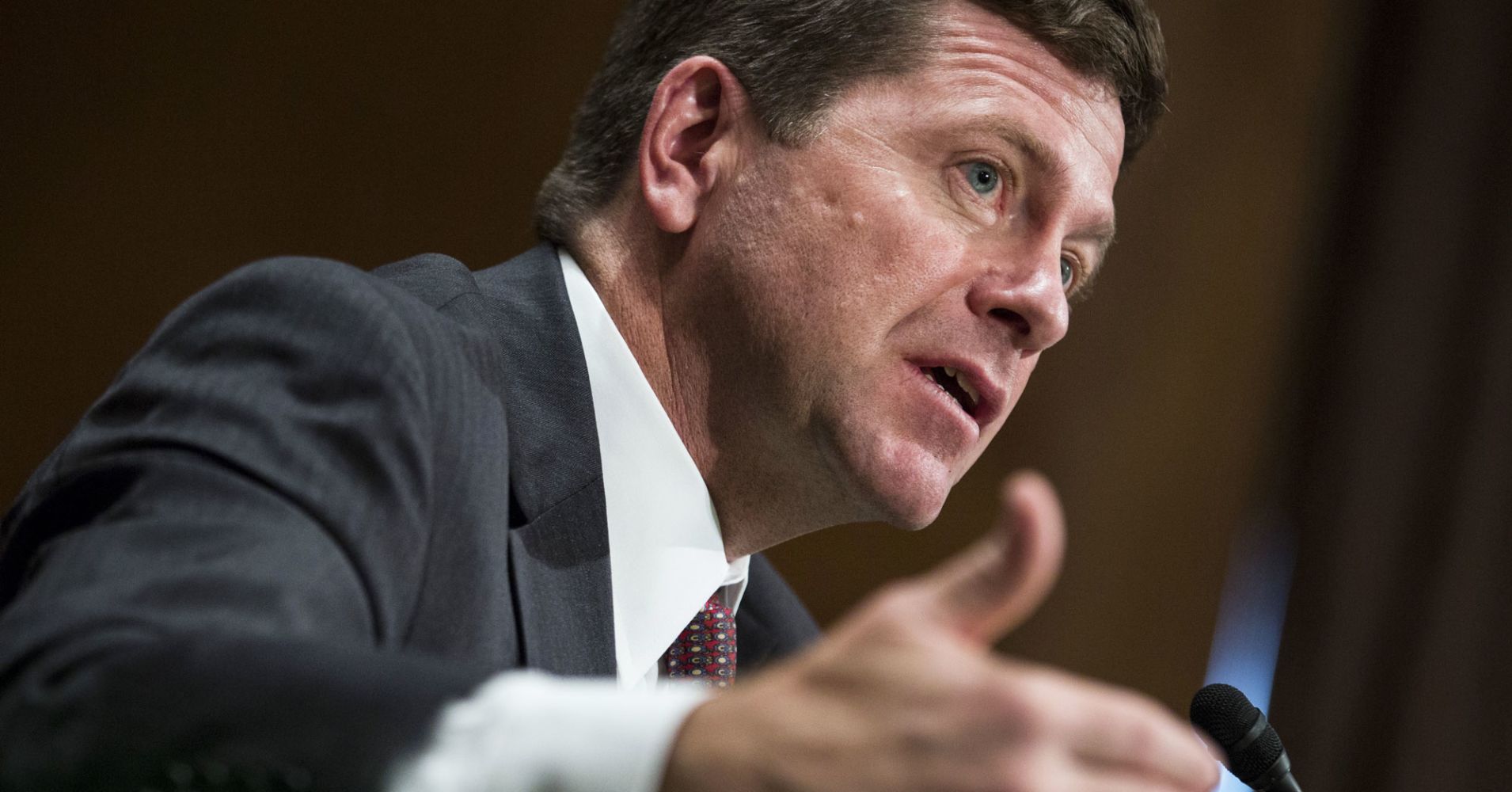Cryptocurrency enthusiasts have been eagerly awaiting the approval of what would be the first-ever bitcoin exchange-traded fund, or ETF.
But the man largely behind greenlighting one — Securities and Exchange Commission Chairman Jay Clayton — has a few worries that need to be assuaged before he’s “comfortable” approving the investment vehicle.
The first is a lack of market surveillance.
Because most cryptocurrency exchanges don’t use the same monitoring tools as stock exchanges, Clayton said investors may not get a fair assessment of bitcoin’s price.
“What investors expect is that trading in the commodity that underlies that ETF makes sense and is free from the risk of manipulation,” Clayton said at the Consensus Invest Conference in Manhattan. “It’s an issue that needs to be addressed before I would be comfortable.”
The New York Stock Exchange and the Nasdaq have what’s known as “surveillance,” or systems that monitor, prevent and investigate abusive and manipulative activity on the exchanges.
“Those kinds of safeguards do not exist currently in all of the exchange venues where digital currencies trade,” Clayton said.
There are outliers though. In April, Nasdaq announced a collaboration with digital currency exchange Gemini, founded by early bitcoin investors Tyler Winklevoss and Cameron Winklevoss. The deal gives Gemini access to Nasdaq’s surveillance technology to help make sure the platform provides a fair and “rules-based marketplace” for their own participants, Gemini CEO Tyler Winklevoss said in a statement.
Exchange-traded funds track an index or group of assets but trade like stocks. Analysts say the approval of one could bring in a wave of institutional buyers and because bitcoin has a fixed supply theoretically push up prices.
The agency has rejected multiple applications for a cryptocurrency ETF. In its decision not to approve the Winklevoss brothers’ ETF, the SEC pointed to the risks of fraud and market manipulation and the challenge of investor protection.
How to safely store these assets is a major roadblock. While bitcoin’s price itself is certainly volatile, investors could also be exposed to a risk of theft in the underlying asset.
“We’ve seen some thefts around digital assets that make you scratch your head,” Clayton told Silver Lake Partners’ Glenn Hutchins, who moderated the panel. “We care that the assets underlying that ETF have good custody, and that they’re not going to disappear.”
There are dozens of cryptocurrency custody solutions that have either been announced or are already on the market. Fidelity said in October that it was launching a separate company to handle cryptocurrency custody and trade execution for institutional investors.
Crypto companies Coinbase, Gemini, BitGo, Ledger and ItBit are among those already working on similar solutions. Japanese bank Nomura also announced plans in May to offer crypto custody, and Goldman Sachs and Northern Trust are reportedly exploring custodial services. But until Fidelity, there had been a noticeable lack of big U.S.-based incumbents officially entering the space.
Despite the options, Clayton said custody offerings still “need to be improved and hardened.”
Clayton also had a message for those issuing initial coin offerings: Chances are, it’s subject to SEC laws.
“You should start with the assumption that you’re starting with a securities offering,” Clayton said.
In June, Clayton made it clear that the agency won’t bend the rules for cryptocurrency when it comes to defining what is or what isn’t a security. He told CNBC at the time that the U.S. has built a $19 trillion securities market that’s “the envy of the world” following the current rules.
Whether an asset is a security right now follows the “Howey Test.” The ruling comes from a 1946 U.S. Supreme Court case that classifies a security as an investment of money in a common enterprise, in which the investor expects profits primarily from others’ efforts.
The SEC has said explicitly that bitcoin and ether are treated as commodities and therefore aren’t subject to that test. But all other cryptocurrencies are still seen by the SEC as securities and need to register with the agency.
The SEC has penalized multiple cryptocurrency projects that failed to do so. Earlier in November, the agency announced its first civil penalties against founders who did not register new coin offerings, adding to its crackdown aimed at abuses and outright fraud in the growing digital industry.
Bitcoin, the world’s largest cryptocurrency, was trading near $3,760 Tuesday, down more than 80 percent from its all-time high in December, according to data from CoinDesk.


 Signal2forex.com - Best Forex robots and signals
Signal2forex.com - Best Forex robots and signals




